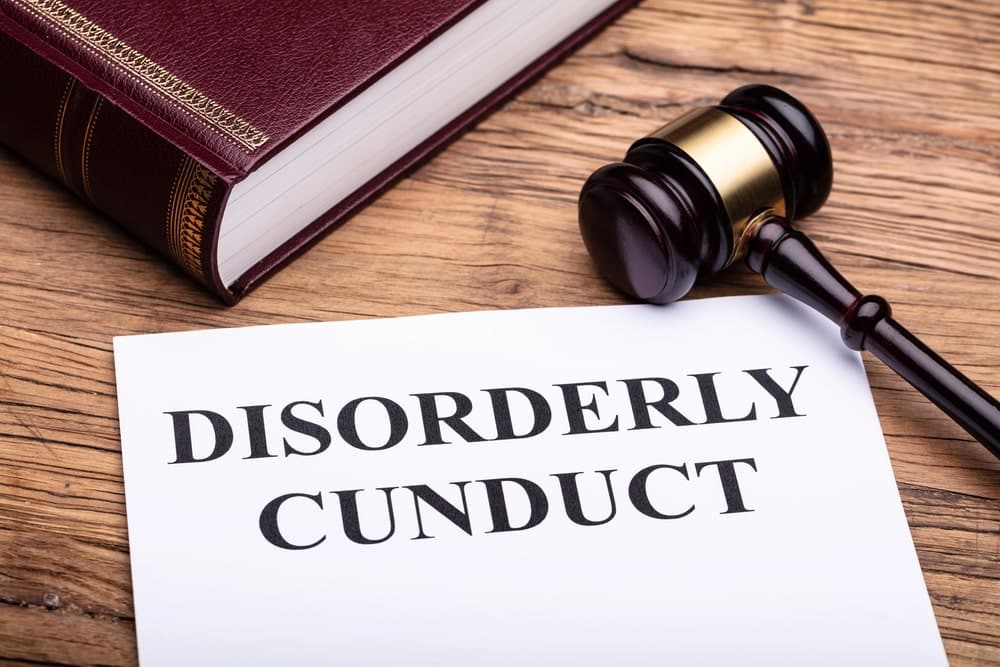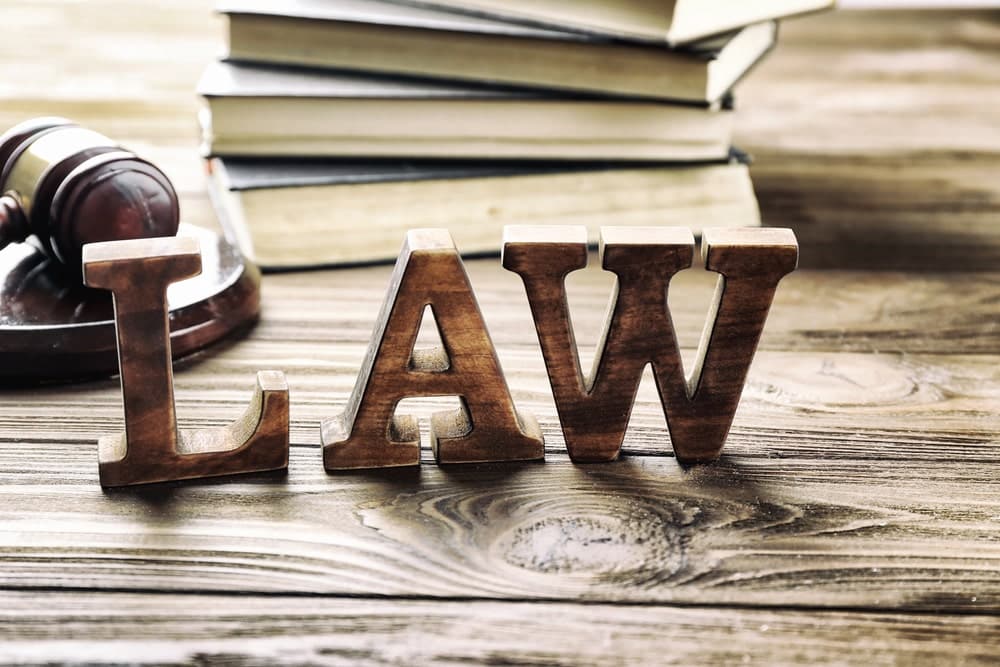Expungement is the practice of legally erasing or striking out documents or information relevant to criminal charges.
It’s not possible to expunge a criminal record in Maine. However, other avenues may exist if you have a criminal record and want to limit who has access to the information it contains — to minimize the impact it has.
A criminal record can affect many aspects of your life — from employment and accommodation opportunities to immigration status and travel.
Here, we discuss how Maine classifies criminal records and what steps you may be able to take if you’ve been convicted of a crime and want to ensure that one mistake doesn’t result in too many restrictions in your life.
Call 207-571-8146 or contact us online to schedule a consult with one of our highly skilled criminal defense & OUI lawyers, serving Southern Maine, today.
Table of Contents
How is your criminal record classified in Maine?
Convictions and most active legal cases in Maine are generally considered matters of public record. This means that employers, landlords and others can easily access the information.
This information includes details that identify an individual as having been involved in the criminal legal process in Maine. It records information from the following sources:
- Law enforcement
- The Maine court system
- The District Attorney’s offices
All stages of the criminal process are recorded, including arrests, bookings, criminal charges, indictments, pleas, verdicts, sentencing, incarceration, and appeals.
If you were wrongfully arrested, for instance, this information would generally show on your criminal record and could negatively (if unfairly) impact your future.
Whether a case is classified as “confidential” or “public” will determine who, precisely, can see the information.
What criminal records are classed as “confidential” in Maine?
If criminal history information is classified as “confidential” in Maine, only limited public access is granted.
Unless a case is classified specifically as “confidential,” it will default to public criminal records in Maine.
Examples of confidential criminal records information
Typical examples of criminal cases that are classified as confidential in Maine include records where:
- Law enforcement has decided not to refer the matter to a prosecutor
- Charges were not filed by the prosecutor after more than a year following an arrest (unless the person is a fugitive)
- The charges are dismissed
- The case ends without a conviction (not guilty verdict)
- A mistrial is concluded
- The defendant has been granted a full-and-free pardon for a conviction
Examples of public criminal records
Any criminal case not listed above is subject to public classification in Maine and can be shared with “any person or public or private entity for any purpose” according to the Maine legislature.
For instance, this includes:
- Convictions
- Case dispositions (e.g., deferred dispositions)
- Any information on pending cases less than a year old
- Arrests, warrants, booking information, pleas, etc.
Call 207-571-8146 or contact us online to schedule a consult with one of our highly skilled criminal defense & OUI lawyers, serving Southern Maine, today.
Can your criminal records be expunged or sealed in Maine?
Unless you can secure a pardon (see more about this below), there is only one way for a public record to be made “invisible” or, at least, “limited view” in Maine.
Unlike some states, there is no expungement in Maine. Instead, you may be eligible to apply for record sealing — but only for certain criminal offenses considered relatively minor
Sealing a record means that the general public will not have visibility of it — but a wide range of people can still see the information, i.e., those with permission to access confidential records (such as law enforcement), as well as criminal justice agencies, the victims of the crime, professional licensing agencies and financial institutions (for employment purposes).
Sealed records are handled as if the offense never occurred. The individual concerned can legally deny the existence of the arrest and conviction, except when applying for jobs that legally require background checks.
Sealing Class E crimes
Sealing is available only for Class E crimes committed before an offender turned 28 years of age in Maine. No such possibility exists for Class A to D crimes.
Class E crimes are punishable by up to six months in jail and a $1,000 fine. They include operating on a suspended license, disorderly conduct, and theft under $1,000.
It should be noted that sealing orders removes the record from public view and makes it confidential. It does NOT erase the record. However, sealed information cannot be released to the public without a court order.
Not everyone convicted of a Class E crime is eligible to seal the conviction. Before filing a “Motion to Seal Criminal History” with the court, you should ensure that the following criteria are met:
- The offense was committed between the ages of 18 and 27 years
- Four years have passed since the completion of the sentence (including the payment of all fines, fees and restitution)
- No pending state or federal criminal charges exist for the applicant
- The applicant has not been convicted of a crime since completing the sentence
- There has been no deferred disposition or dismissal in Maine since completing the sentence
Note that juvenile criminal records (offenses committed before the age of 18) are automatically sealed in Maine.
Class E sexual assaults are excluded from the general rules for sealing records. These offenses will remain in public view.
For sealed records, if the person is later convicted of any offense in Maine or elsewhere, the court will unseal the record to become public again.
Call 207-571-8146 or contact us online to schedule a consult with one of our highly skilled criminal defense & OUI lawyers, serving Southern Maine, today.
Can you challenge an inaccurate or incomplete criminal record in Maine?
If you suspect inaccurate or incomplete information on your criminal record in Maine, it is essential to address the matter.
A criminal defense attorney can advise you of your options. Criminal record information can be sealed if it is proven to be faulty or inaccurate, but this is a complex legal process with which you may require assistance.
Copies of records are available from the Maine State Bureau of Identification. Providing you are eligible and can provide adequate supporting documentation, you can petition the court for sealing of the record.
Who can receive a pardon in Maine?
A pardon may be granted to certain people with criminal convictions — if five years have already passed since the completion of the sentence.
Pardons involve an application, hearings and interviews with the Pardon Board. They are granted by the state governor, and it should be noted that certain crimes are ineligible for pardons, including:
- Operating under the influence (OUI)
- Crimes that require registration on the Sex Offender Registry
- Crimes that involve the removal of firearm privileges
A free and full pardon means that the record will be classified as confidential — not expunged. A conditional pardon remains public and is not sealed.
Pardons may not erase the conviction but do absolve the recipient of the legal implications of the criminal conviction. They may improve employment and housing prospects, as well as allow the recipient to vote, possess guns, hold public office, etc.
Applying for a pardon is, however, time-consuming and complex. Most people seek legal assistance from a qualified attorney if they take this path.
For experienced help in sealing a criminal record or seeking a pardon, call the Maine Criminal Defense Group at 207-571-8146 for an initial case -evaluation.
Call 207-571-8146 or contact us online to schedule a consult with one of our highly skilled criminal defense & OUI lawyers, serving Southern Maine, today.
Blog Posts

A criminal conviction usually appears on criminal records for life in Maine, potentially impacting the individual’s employment, education, travel, housing, immigration status, and more. However, certain low-level misdemeanor convictions can[...]

The legal term for sentencing a convicted criminal is not required to serve is called a suspended sentence. A suspended sentence is handed down during the sentencing portion following a[...]

If you receive a traffic ticket in Maine, you may be facing far more than demerit points or an administrative penalty. You could be facing criminal sanctions and a permanent[...]

In Maine, disorderly conduct laws effectively make disturbing the peace a criminal offense. While disorderly conduct is considered one of the least serious offenses under Maine’s Criminal Statutes, it can[...]

Any criminal charge for a drug-related offense is a serious matter in Maine,but how consequential the outcomes can get may depend on whether the charge is filed at the state[...]


Self-defense laws in the U.S. are complex, vary from state to state, and are often misunderstood. “Stand your ground” laws allow an individual to use deadly force in self-defense in[...]

Every day in Maine, people are charged with crimes that they did and did not do. Fortunately, in the U.S., we have a justice system that says you’re innocent until[...]

If you have been arrested or are under investigation for a crime in Maine, it is crucial to retain the services of a competent and experienced criminal lawyer. A criminal[...]

Bail Code in Maine Title 15, Chapter 105 of the Maine Revised Statutes governs all issues pertaining to bail in Maine. When a defendant has been arrested and charged with[...]


